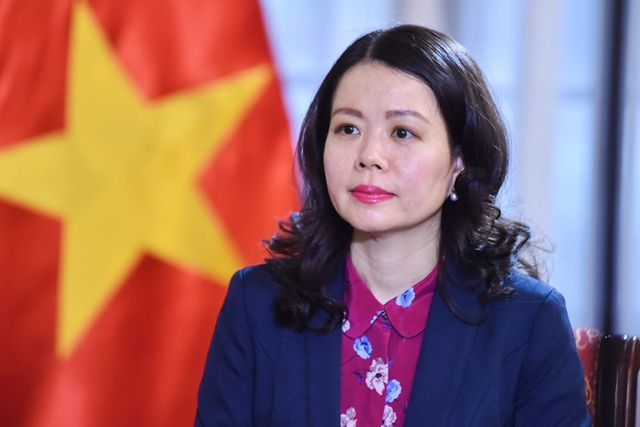Viet Nam contributes to converting SEARP into regional cooperation pillar
VGP - Viet Nam has officially finalized its co-chairmanship of the OECD Southeast Asia Regional Program (SEARP) for 2022-2025, contributing to turn the initiative into a truly regional cooperation pillar with substantive impacts and long-term vision, said Deputy Minister of Foreign Affairs Nguyen Minh Hang.

Deputy Minister of Foreign Affairs Nguyen Minh Hang
Viet Nam has affirmed its role, positive contributions, responsibility as well as management and leadership capabilities at multilateral mechanisms.
At the SEARP co-chairmanship handover ceremony, the OECD Secretary-General underscored that under Viet Nam and Australia's leadership, SEARP elevated the relationship between OECD and Southeast Asia to a new high.
Viet Nam's holding of an important position within a high-standard international organization like the OECD demonstrates a step to realize the foreign policy outlined at the 13th National Party Congress and in Directive 25-CT/TW on promoting and elevating multilateral diplomacy by 2030, issued by the Party Central Committee's Secretariat.
The program was launched in 2014 at the initiative of Japan to support economic reform across the Southeast Asian region through sharing development experience and promoting sustainable and inclusive economic growth via 13 collaboration areas.
Viet Nam and Australia led the program in an unprecedented challenging period marked by post-pandemic recovery, disrupted global supply chains, and increasingly severe climate-related disasters. Besides, the sweeping impacts of the Fourth Industrial Revolution, and breakthroughs in semiconductor and AI forced developing nations to renew growth model and invest in science-technology as new breakthrough drivers.
Viet Nam and Australia worked with SEARP members to identify three strategic priorities. They identified that the focus should be channeled to supporting Southeast Asian countries to overcome short-term economic shocks by promoting appropriate fiscal and monetary policies, supporting micro, small and medium enterprises, and strengthening supply chain resilience.
The initiative helped regional countries with carrying out structural reform to improve productivity, better business and investment climate, bolster innovation, and develop high-quality human resources towards sustainable and inclusive growth.
It strengthened cooperation between Southeast Asian countries and OECD through sharing experience and applying OECD standards and best practices to help the countries align more closely with international standards on governance, transparency, and sustainable development./.

